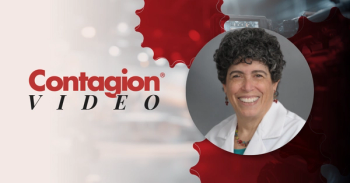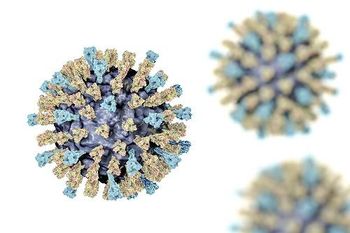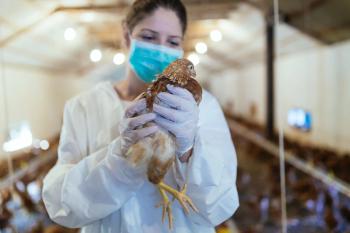
What's in a Name? Hashtags, Retweets, Links, Followers, and Twitter Chats
John Nosta, BA: I want to go over 3 things that are, I think, important. One is the hashtag surge. For example, I’m at a convention, and I want to use #IDWeek. Second is following @you, or whomever it is—these key people. And then third is the use of lists. That’s almost considered to be a bit of a sophisticated tool. If you can build a list of infectious disease thinkers and just click it and put in a list and then go back and look at your list, that’s extraordinary. Let’s go through those 3 and discuss what works for you.
Debra A. Goff, PharmD, FCCP: When I am trying to target oncologists, it’s #oncologist.
John Nosta, BA: Oncologist or oncology?
Debra A. Goff, PharmD, FCCP: Well, that depends.
John Nosta, BA: I would probably do both if I had enough room; or #cancer.
Debra A. Goff, PharmD, FCCP: So plural, singular—they are all hashtags. You’ve got to pick your poison.
John Nosta, BA: And those are nuances. You have to figure out what works, right?
Debra A. Goff, PharmD, FCCP: Exactly. Which one is trending the most? Keeping it simple, I may do #surgeons and then post what it is that I’m talking about. Then I add in my key surgeons, who I know will retweet the post. Dr. Ben Nwomeh is usually one of those people because I work with him, and it’s good for The Ohio State University. The other thing is, for any place you work, you better…
John Nosta, BA: I was just going to say academic affiliation.
Debra A. Goff, PharmD, FCCP: You have got to realize that someone is following every tweet you send. Use common sense. Never say something negative about a place of employment or people. Keep your tweets positive. You’re not there to voice political opinions and all of that. Just assume it’s all being read by someone higher up than you, and that you’re going to get called out if you tweet the wrong thing.
John Nosta, BA: Yes.
Debra A. Goff, PharmD, FCCP: So be responsible. And remember, whatever you tweet stays on Twitter forever. You can’t take the words back. If you’re angry or upset about something, that’s not a good time to start tweeting. I always assume that my university is monitoring my tweets because I tweet a lot. But I see it as an extension of representing my university in a very positive way.
John Nosta, BA: Sure.
Debra A. Goff, PharmD, FCCP: I’m reaching a whole different audience than they are. I’m not the university or the hospital. So it’s really a win-win situation because they can then promote my tweets, and they have a different circle of followers than I do. So it’s all good, and it’s promoting my profession. I’m a clinical pharmacist, and that’s the way I promote our profession.
I use lists. I can’t remember everybody I’m following, so when I see a compelling article that is very targeted to GI [gastrointestinal] surgeons, or lung cancer, or melanoma physicians, I have a list of surgeons, and I just scroll down until I find the person I’m looking for, and I include that person in my tweet. It may be only once a month that I target that person, but they know, “Oh, wow. Debbie is sending me something.” And I know the tweet will get retweeted. So that’s just kind of respectful.
John Nosta, BA: Sure. I think respect is a good thing.
Debra A. Goff, PharmD, FCCP: It is.
John Nosta, BA: Sometimes, if I’m…reading a clinical paper, I’ll take the author’s name, cut it out or write it down, and I’ll put it into Twitter to see if he or she tweets. If they tweet, boom, I will follow them.
Debra A. Goff, PharmD, FCCP: Right.
John Nosta, BA: And sometimes I’ll write them a note. I’ll say, “Wow, that was a really interesting paper. Thank you.” And what happens? They follow me back.
Debra A. Goff, PharmD, FCCP: Right.
John Nosta, BA: So I think that reciprocal courtesy is also interesting with Twitter.
Debra A. Goff, PharmD, FCCP: And that’s how you start making connections. And when you go to a World Congress somewhere, all of a sudden you’re like, “I actually know that keynote speaker.”
John Nosta, BA: Again, that’s in network and out of network.
Debra A. Goff, PharmD, FCCP: Yes.
John Nosta, BA: Your out-of-network people become much more influential because they’re functionally in your network.
Debra A. Goff, PharmD, FCCP: Yes.
John Nosta, BA: I want to wrap it up with 1 other question about…chats. I’m not really active on Twitter chats, but I think they could be a powerful tool. These are fixed discussions that last for a half hour. Everybody uses a specific hashtag, like #ID.
Debra A. Goff, PharmD, FCCP: So we have done a couple, and they have proven to be very effective. During World Antibiotic Awareness Week, the world is tweeting about responsible use of antibiotics. We’re trying in every way to connect with consumers, health care providers, and patients. The CDC [Centers for Disease Control and Prevention] is hosting a Twitter chat. What that means is that the CDC will post questions using the hashtag—you have to know what the hashtag is—and then anybody around the world can tweet directly to medical experts at the CDC. When do we have the opportunity to do that?
John Nosta, BA: Never.
Debra A. Goff, PharmD, FCCP: You are talking to the CDC. You can talk to the World Health Organization. They do Twitter chats. In infectious disease clinical pharmacy, we have ASP—the antibiotic stewardship program chat. So it’s #aspchat. This is a focused Twitter discussion. You have content experts who post questions and anybody around the world—you could be a patient affected by MRSA [methicillin-resistant Staphylococcus aureus]—has direct access to world leaders, who are answering questions. Now, again, we’re very cautious to not give medical advice. So if a patient says, “I got treated with this,” we’re going to take that offline.
John Nosta, BA: Right.
Debra A. Goff, PharmD, FCCP: But it’s a very amazing way to connect.
John Nosta, BA: Aside from the polling methodology on Twitter, which is a discussion for another day, you have sort of the instant gratification of seeing who likes it—how many hearts it gets—and how many retweets it gets. So it’s almost a certain validation that people are resonating with this.
Debra A. Goff, PharmD, FCCP: What’s great is you can actually catalog it. The CDC has a huge voice on Twitter. When they do a Twitter chat or a Twitter storm during Antibiotic Awareness Week, who are they reaching? Do they have patients and consumers asking them questions? Or are they not on there? And then the other key important thing is that there is a lot of wrong information about health care, and about antibiotics and vaccines, etc.
John Nosta, BA: Yes.
Debra A. Goff, PharmD, FCCP: I’m in infectious diseases. I see how vaccines save lives, but there are a lot of people who don’t believe in them, and they have a large presence on social media. If not us, who is to dispute that with medical facts? You really need to have a balance of both. You can have medical factual data from the people who see the consequences of people not being vaccinated. So it’s a powerful voice. Otherwise that 1 voice might not be accurate.
John Nosta, BA: Who else is going to do it?
Debra A. Goff, PharmD, FCCP: Who’s going to do it?
John Nosta, BA: Excellent. Well, this has been fascinating.
Debra A. Goff, PharmD, FCCP: So fun.
John Nosta, BA: And I have 1 thing to say.
Debra A. Goff, PharmD, FCCP: What?
John Nosta, BA: See you on Twitter.
Debra A. Goff, PharmD, FCCP: Absolutely. Thank you, John, for your contribution to this really great discussion. And on behalf of the panel, we want to thank you for joining us, and we hope you found this Contagion® program to be useful and informative: social media and infectious diseases. Thank you.
Newsletter
Stay ahead of emerging infectious disease threats with expert insights and breaking research. Subscribe now to get updates delivered straight to your inbox.
































































































































